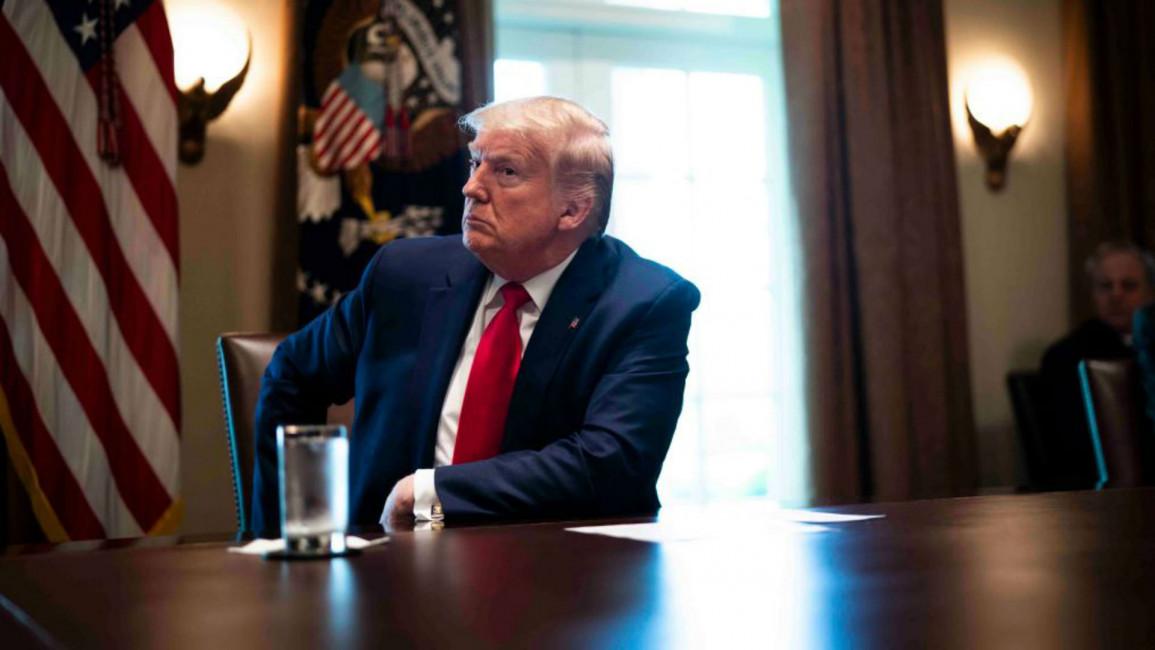
Saudi-Russia oil price war to put Trump's leverage to the test
Since OPEC+ failed to agree on universal production cuts in March, Saudi Arabia has taken advantage of its ability to produce cheap oil and is offering it at discounted prices to European markets.
As of last Wednesday, Saudi Arabia had increased production to 12 million barrels per day, its maximum level, as oil prices have dropped to a two-decade low, in a situation which Trump dubbed "crazy."
Trump spoke with Russian President Vladimir Putin about the issue of cutting oil production worldwide a day earlier, and they agreed to have their top energy officials discuss the issue. Further, the White House has sent energy envoy Victoria Coates to Saudi Arabia to help spur an agreement with the leadership there.
Still, Russia and Saudi Arabia are not holding direct talks and have no immediate plans for them, leaving the American plan the main avenue for reaching some price stability. Last week, news of potential talks saw Brent crude increase nearly 12 percent, signalling how important such a deal would be. But on Monday it was announced those talks have been delayed until Thursday.
Managing the oil price crisis would be a coup for Trump in two respects: First, he could gain popularity among US oil producers, with the shale industry particularly hard hit due to higher costs associated with extraction.
It's no secret that Trump is trying to help soften the blow for domestic energy producers, with measures such as potential tariffs on oil imports from Saudi Arabia being discussed. An initial meeting on Friday at the White House included Exxon Mobil, Chevron, Occidental, and Continental Reserves, as well as smaller refiners and producers, to discuss potential waivers for royalties on existing onshore and offshore leases.
 |
Whether Trump is able to bring OPEC+ parties to the table to spur universal production cuts will be a major test of his leverage |  |
As discussion about potential tariffs on foreign, particularly Saudi oil, ramp up, it is worth noting that the American Petroleum Industry has in the past opposed trade tariffs because they can complicate global relationships. Still, the group wrote to Trump on 20 March requesting relief, and the government has announced that it will temporarily relax some environmental enforcements. Managing the relationship and gaining confidence of domestic energy producers will be critical for the Trump re-election campaign in particular.
Second, on the global stage, a Trump-brokered oil deal would demonstrate the power of the US in global energy markets and will serve as a major test of the strength of US leverage over a defiant Saudi Arabia. Whether Saudi Arabia agrees to a deal with Russia and the rest of OPEC+ at American urging will reveal how independent MbS is willing to be from his American ally in order to preserve domestic interests, and will ultimately show whether he values stability or independence at present.
Twitter Post
|
Notably, an agreement could lead to raising some US sanctions on the Russian oil industry, which could shift global energy markets more generally.
Read more: Saudi Arabia and Russia locked in war of words over oil price collapse
Indeed, the US imposed sanctions on two units of Russian oil giant Rosneft in Venezuela, which led them to change ownership to an unnamed company owned by the Russian government. The knock-on effect is that US sanctions would target the Russian government directly, which is increasingly problematic as the US requires Russian cooperation on this issue.
The US also sanctioned Russia's Nord Stream 2 natural gas pipeline, leading to a delay and allowing for more competition for European gas markets, which US producers hope to enter. Putin has requested that the sanctions be lifted for the past two years.
Clearly, then, much is at stake for Trump's domestic and international reputation in brokering the global energy pricing war; the consequences are very significant, particularly because the US has until now remained largely peripheral in the oil price war.
Indeed, Saudi Arabia and Russia announced separately that they would flood the market with oil in April - an arrangement that would last at least until June, which is when OPEC+ is scheduled to meet next, with no signs of a meeting in DC in the interim to change things.
Whether Trump is able to bring OPEC+ parties to the table to spur universal production cuts will be a major test of his leverage and will determine how much coordination will remain in global energy markets for years to come and in future crises as well.
 |
How Saudi Arabia responds will also be crucial in determining the future of its US alliance |  |
Indeed, there are signs that China is taking advantage of low oil prices to build up its reserves, as the country is said to be buying an additional 100 million barrels over the course of this year.
How Saudi Arabia responds will also be crucial in determining the future of its alliance with the Trump administration, with which it has been close in recent years, as well as its broader relationship with the US. The consequences of any negative fallout, then, could go beyond energy markets and affect both US domestic and foreign policy more generally.
Dr Courtney Freer is a research fellow at LSE Middle East Centre.
Follow her on Twitter: @CourtneyFreer
Opinions expressed in this article remain those of the author and do not necessarily represent those of The New Arab, its editorial board or staff.




